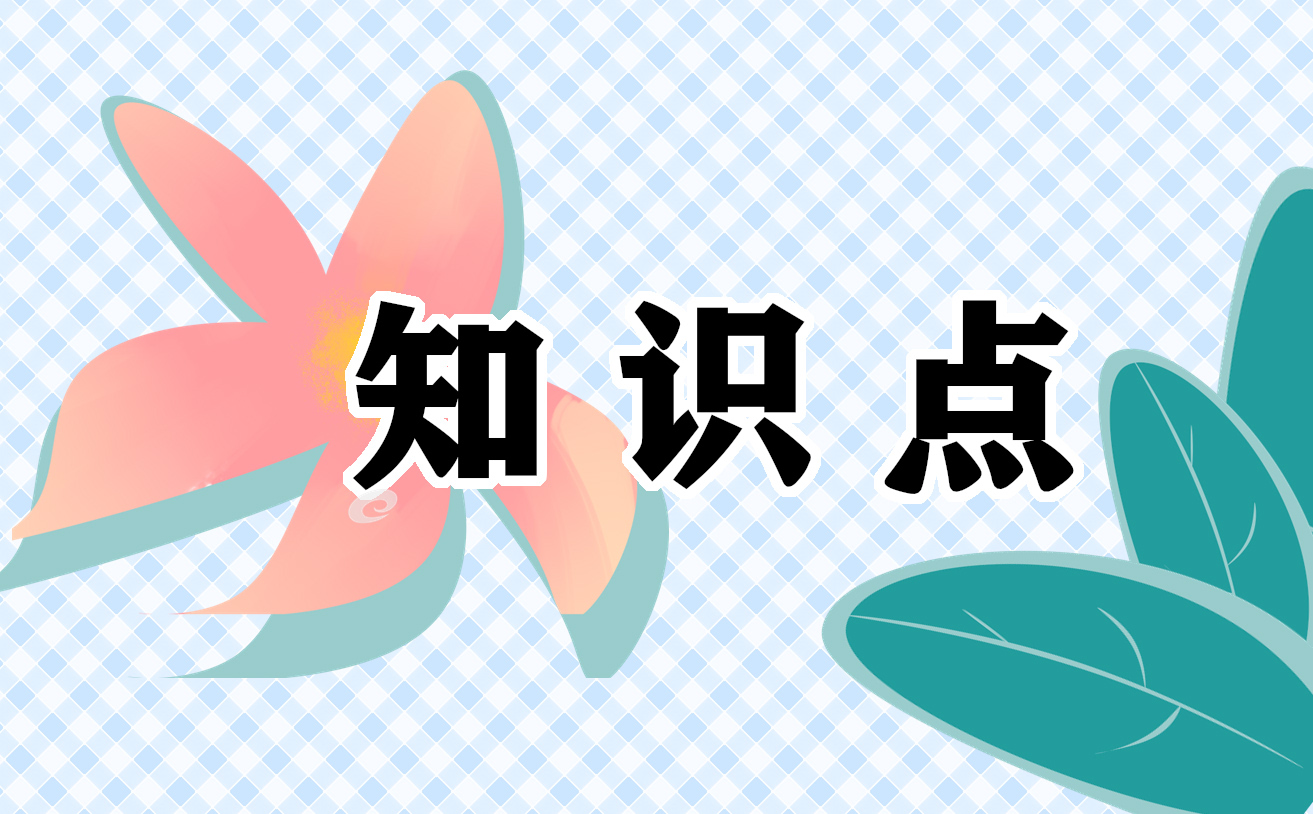今天和大家一起学习一下aid用法,快来一起学习吧,下面小编就和大家分享,来欣赏一下吧。
词汇精选:aid的用法和辨析
一、详细释义:
n.
帮助,援助 [U]
例句:
The governor concluded not to call for aid from other countries.
总督决定不向其他国家求援。
例句:
He went to the aid of the hurt man.
他前去帮助那受伤的人。
帮助者,助手;辅助设备,辅助物 [C]
例句:
A good map is an important aid for our trip.
一本好地图是我们旅行的好助手。
例句:
A dictionary is an important aid in learning a language.
词典是学习语言的重要助手。
v.
帮助,援助 [I,T]
例句:
The criminal was aided by an accomplice.
罪犯得到了一个同谋的帮助。
例句:
Tom's uncle aided him in getting a new job.
汤姆的叔叔帮他找一个新工作。
有助于 [T]
例句:
A good dictionary can aid language learning.
一部好词典有助于语言学习。
二、词义辨析:
help,aid,assistance,support
这些名词均有“帮助,支持”之意。 help最普通用词,可以与aid和assistance换用。help强调使受助者达到目的或侧重受助者对帮助的需要。 aid比help正式,侧重受助者处于困难或危险境地急需救助。 assistance正式用词,通常指帮助完成不太重要的那一部分工作。 support强调在迫切需要时给予支持或鼓励。
三、词义辨析:
aid,assist,help
这些动词均有“帮助”之意。 aid正式用词,指帮助他人脱离危险或战胜困难,着重强者对急需帮助的弱者的帮助。 assist强调在提供帮助时,以受助者为主,所给的帮助起第二位或从属的作用。 help最普通用词,含义广泛。指一般性的或迫切需要的帮助,侧重积极地为他人提供物质、精神或其他方面的帮助。
四、相关短语:
aid station
n.战地救护站
financial aid
经济援助,资助
first aid
n.(对伤患者的)急救
foreign aid
n. 外援
teaching aid
n. 教具
first-aid kit
n.急救箱
first-aid station
救护站,救护站,急救站
economic aid
经济援助
hearing aid
n. 助听器
mutual aid
【法】 互助
一、参考例句:
Financial aid for Britain has been withheld.
向英国提供的经济援助已经被扣。
A good dict can aid language learning.
一部好词典有助于语言学习。
Increases in grant aid will replace loans.
奖学金资助的增加将取代贷款。
A good dictionary can aid language learning.
一部好词典有助于语言学习。
Could aid agencies be made to compete?
能够让援助机构相互竞争吗?
the largest recipient of American foreign aid
美国对外援助的最大受惠者
He went to the aid of the hurt man.
他前去帮助那受伤的人。
U.N. aid convoys have unimpeded access to the city.
联合国救援车队可以畅通无阻地进入该市。
The legal aid system should be accessible to more people.
法律援助制度应该面向更多人。
There are many emergencies which need prompt first aid treatment.
有很多紧急情况需要进行迅速的急救处理。
高考英语词汇:aid的用法
高考英语词汇:aid的用法
1. 用作名词
① 表示一般意义的“帮助”或“援助”,是不可数名词:
The family lived on government aid for two years. 这一家人靠政府援助生活了两年。
How much foreign aid does Britain give? 英国在援外方面作出了多少贡献?
②表示“助手”或“辅助用品”等具体意义,是可数名词:
The teacher made the teaching aids himself. 这位老师自己做教具。
A dictionary is an important aid in learning a new language. 词典是学习一种新语言的重要工具。
③用于短语:
(a) come (go) to one’s aid 来(去)帮助某人:
They all came to my aid. 他们都来帮助我。
He went to the aid of the injured man. 他帮助那个受伤的人。
(b) in aid of 用来帮助...:
He collected money in aid of charity. 他为资助慈善事业募捐。
该短语通常用于 What’s ...in aid of?(...有什么用?)这样的结构:
What’s the money in aid of? 这钱作什么用?
Now then, what’s all this crying in aid of? 好啦,还有什么好哭的?
(c) with the aid of 借助...的帮助:
We may travel with the aid of a good map. 我们可以靠一张好地图去旅行。
The old man walked with the aid of a cane. 这位老人拐着手杖走路。
2. 用作动词(及物)
They aided us with money. 他们用钱资助我们。
They aided him in scientific studies. 他们援助他从事科学研究。
A good dictionary can aid language learning. 一本好词典有助于语言学习。
注意以下正误句型:
我们已帮助他们提前完成了工作。
正:We’ve aided him to finish the work ahead of time.
正:We’ve aided him in finishing the work ahead of time.
误:We’ve aided him finish the work ahead of time.
3. 比较 aid 与 help:
①help 属普通用词,多用于口语和一般性文体;而 aid 则属正式用词,多用于较正式的文体。
②在表示较大的经济或物质帮助时一般用 aid, 较少用 help。
③两者句型有同有异:
正:help sb (to) do sth (to 可省略)
误:help sb doing sth
正:aid sb to do sth (to 不可省略)
正:aid sb in doing sth
误:aid sb do sth
EXPOSE用法
expose是个动词,意思是暴露,揭露,使曝光
看一个教材原句:
But he became inspired when he thought about helping ordinary people exposed to cholera.
但是他一想到要帮助那些收到霍乱威胁的普通百姓,他就感到很振奋。
expose常用搭配:
expose…to… 使…暴露于…,使…接触到…
be exposed to暴露于;接触到
例句如下:
You'd be exposed to a lot of less polution if you move to a town with pure water and air.
如果你搬到一个水质纯净、空气清新的小镇,你接触到的污染将少很多。
注意:expose的名词形式是exposure(意思还是 暴露,曝光)
fun的用法与搭配
1. It's fun后接不定式或动名词均可,意思基本相同。如:
It's great fun sailing a boat.= It's great fun to sail a boat. 扬帆驾舟十分有趣。
2. 表示做某事很开心,可用have (there is) fun (in) doing sth。如:
We had fun riding our bicycles to the beach today. 我们今天骑自行车去海滨玩得很开心。
There's no fun in spending the evening doing nothing. 晚上无事可干,很无聊。
3. 以下各例中的fun虽用作表语,但仍为名词,而非形容词,故可用great, much, a lot of等形容词修饰,而不用very等副词修饰。如:
She's great fun to be with. 同她在一起很有意思。
Why don't you come with us? It'll be great fun. 干吗不同我们一起去呢?很有趣的。
下面一例中fun前的more为much的比较级。如:
It is more fun to go with someone than to go alone. 偕伴同去比自己独自去好玩。
4. 注意for fun(为了高兴,为了好玩)与in fun(不是当真的,闹着玩的,开玩笑地)意不同。比较:
I am not saying it for fun. 我说这话并不是在开玩笑。
He said so only in fun. 他这样说只是开开玩笑。
aid的用法和辨析相关文章:
aid的用法和辨析
上一篇:aim的常见用法小结
下一篇:advertise的用法和辨析




